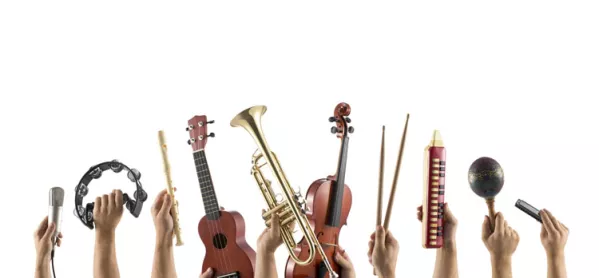Scotland’s education secretary has suggested that some councils do not “recognise the value” of teaching children to play musical instruments, during questioning about charges for the service by MSPs.
Giving evidence at an inquiry into music tuition in schools by the Scottish Parliament’s Education and Skills Committee, John Swinney argued the charges - set by individual local authorities - risked creating barriers for children wanting to play an instrument.
However, Mr Swinney revealed he was not considering direct funding grants from central government for music tuition to allow councils to stop charging families.
Concerns are mounting that music tuition could become extinct in some schools due to fee rises. In some local authority areas, tuition is free but in others councils charge hundreds of pounds for the service.
Figures submitted already to the inquiry show there has been a fall of more than 1,200 in the number of pupils learning an instrument in one year.
Mr Swinney said: “Some local authorities, despite all the issues that are raised generally about local authority finance, attach the priority to this that they make the eligibility for access to instrumental music tuition free.
“Some local authorities recognise the value of instrumental music tuition and want to put in place no barriers to the access of instrumental music tuition as a consequence of the decisions that they’ve made.”
He listed Dundee, Edinburgh, the Western Isles, Glasgow, Orkney, Renfrewshire and West Dunbartonshire as authorities that had not introduced charges.
Labour MSP Iain Gray asked whether he was content or concerned by the variation in costs of musical tuition, as in one part of the country it may be free while “in another it cost a family quite a few hundreds of pounds”.
Mr Swinney replied: “There is quite clearly a risk that the cost is an inhibitor to the participation of young people within instrumental music tuition.”
Asked whether local authorities were living up to a 2013 commitment they would not be charging for music tuition that led up to an SQA (Scottish Qualifications Authority) qualification, he said: “I can see no evidence of that happening, with the exception that I am concerned by what I am seeing in Midlothian Council which I don’t think is consistent with the spirit of that commitment.
“It may be just about passable by the letter of it, but I don’t think it’s consistent with the spirit.”
Also giving evidence were leaders representing Scotland’s 32 councils.
Stephen McCabe, children and young people spokesman for local authorities body Cosla - who is also the leader of Inverclyde Council - blasted local government cuts.
He said: “The fundamental issue is not about ringfencing one area or protecting services, it is the chronic underfunding of local government over the last 10 years which this Parliament has presided over.
“Since 2011-12, core funding to local authorities has been reduced by £1.64 billion in real terms.
“No local authority makes the decision to introduce or indeed increase charges for any service lightly.“He added:
“However, the financial situation for local authorities continues to be very difficult and as a consequence councils have faced difficult decisions about funding.”
Questioned on Cosla’s submission ahead of the next week’s Budget, Mr McCabe said: “We’re looking for a fair settlement overall, there’s no specific ask on music.
“But if we were to get the settlement we are seeking, that would make it far easier for councils to protect services like music.”
When the hypothetical option of more central government funding specifically for music tuition was suggested,Mr McCabe described such a measure as a temporary “sticking plaster”.
“It costs, we’ve estimated, £28 million a year to provide music tuition. Fees and charges, which aren’t applied by every council, raise in the region of £4 million.
“Next year it will cost more than £28 million, it will cost more than £28 million the year after that because of inflation and wages going up.
“So we think simply saying ‘find £4 million’ to wipe out the charges is a very simplistic solution.”
Lauren Bruce, Cosla’s chief officer for local government finance, explained that cuts disproportionately affect certain areas due to ringfencing around issues such as teacher numbers.
She said: “The savings that local government have to make from core budgets can only be taken from 42 per cent of the budget that comes to a local authority.”





